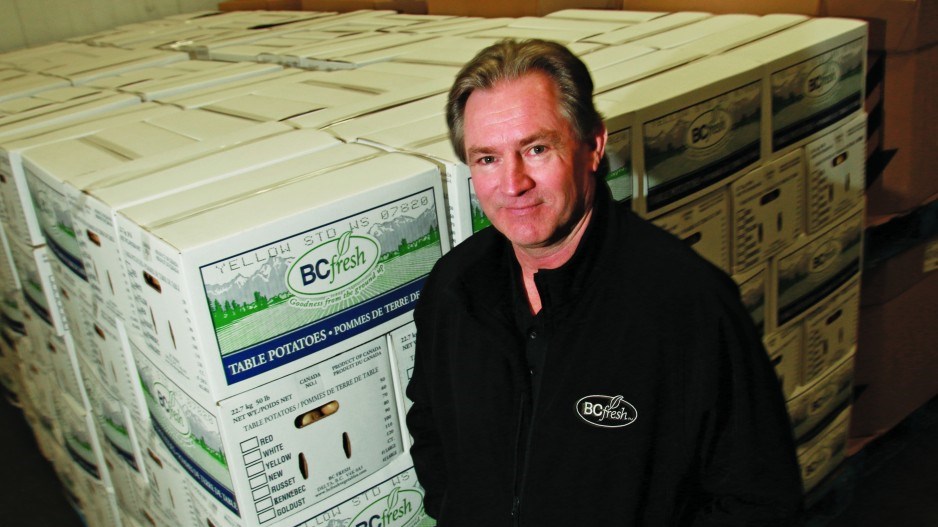Taken in isolation, B.C. businesses say they might be able to cope with some of the increased costs and tax hikes coming from the provincial and federal governments.
But combined, it’s a pig pile that could break some backs.
Murray Driediger, CEO of BCfresh, a producer-owned marketing and distribution company for vegetable farmers, unloads when asked how the recent budget will affect his business.
Driediger has not yet done a full calculation of how much all the new federal and provincial tax hikes and other measures will cost his company. He just knows it’s going to affect the company’s competitiveness and result in having to pass on escalating costs to consumers.
“It’s unbelievable that both the provincial and federal government have literally been dumping costs onto business at the levels that they have and expect us to remain competitive,” he said. “These are monies that we use to modernize to ensure that we remain competitive, and they’re doing everything that they can to throw sand in the gears.”
The biggest, most immediate tax hit will come from a new payroll tax that is being foisted onto employers – from businesses to school districts – to replace the Medical Services Plan (MSP).
BCfresh covers MSP premiums for its 24 employees.
“That used to cost us about $15,000 a year,” Driediger said. “Under the new payroll tax, for the exact same services supplied to our employees, that new cost will be $45,000.”
And because the new payroll tax comes into effect one year before MSP premiums are eliminated, it means some employers, like BCfresh, will have to pay both MSP premiums and the new payroll tax for the first year.
Because the company’s employees have profit sharing, it also means they will likely see lower profits.
“That cost comes directly off the bottom line, which affects the profit-sharing pool for employees,” Driediger said. “So it’s actually going to cost our employees more.”
In addition to the payroll tax, B.C. businesses will pay increased corporate taxes, thanks to a 1% hike from the provincial government. And a $5 per tonne hike to the carbon tax in April will increase per-litre fuel costs by $0.01 – bringing total carbon taxes on gasoline to $0.08 per litre.
“Freight is a major component of getting produce to market throughout British Columbia,” Driediger said. “Fuel costs are a major ... component to growing produce. All of these increases are doing nothing but adding on costs to the consumer, and freight costs are going through the roof.”
The federal government is also adding to the business tax load because employment insurance and Canada Pension Plan premiums for employers are also going up.
The federal government also changed the rules of affiliation for the small-business tax deduction. Each business entity had a $500,000 small-business deduction. Last year the rules changed on how that applies.
BCfresh is the marketing business for 31 grower shareholders. If each grower receives 10% or more of its revenue from BCfresh, it now has to share the $500,000 small-business deduction under the new rules of affiliation.
“There was $15.5 million worth of tax threshold there, collectively,” Driediger said. “It’s now been reduced to $500,000. That affects every grower that is a shareholder in BCfresh.”
He added that there is an exemption for co-ops.
“So our choice now is to convert back to a co-op, which is a 30-year-old business model, to try and avoid these taxes. It’s just absolutely crazy.”
Driediger said there has been a total lack of consultation, when it comes to adding to the tax burden for business.
“It’s a government attitude that, ‘Well, we need programs so therefore we need to find the money so therefore we need to increase taxes,’ and business just seems to be the favourite whipping boy.”




